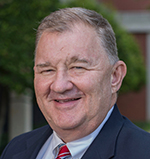

image credit: Lightstock_378189
by Grady King
“My elders just don’t get it.”
“The preacher needs to understand that long after he is gone, the elders remain.
Sound familiar?
Without a doubt, the role of a minister and elder overlap and are complimentary, or should be. Both ministers and elders are to give themselves to teaching, equipping and caring for God’s people; paying attention to their life and doctrine.[1] There is a strong correlation in the relational dynamic between elders-ministers and the health of a church.
Through the years, I have been richly blessed by some very good men, with good hearts who shepherded God’s people. I have also experienced some elders who were compelled to draw a hard line in the roles resulting in an “employer-employee” relationship. One elder justified it this way—“A minister and elder cannot be friends because it makes it difficult to terminate the minister.” Ironically, I visited this man in the hospital just days before he passed away. We had a good visit anticipating how he would see Jesus before me. I thanked him for being my friend and prayed. Following the prayer, the last thing he said to me was, “You’ve been a good friend.” It was a privilege to officiate his funeral. The Golden Rule wins.[2]
The fact remains that ministers and elders have varying perspectives about their roles. Mutual awareness, understanding and clarity is essential for a healthy, functioning working relationship. We need to listen to each other and have realistic expectations. Since I spend a lot of time with ministers and elders, here are a few common statements I have heard that can lead to mutual understanding.
From Elders to Ministers—
- “I work 50 plus hours a week, have family responsibilities. I need time to think through things—be patient.”
- “I don’t like surprises—keep me informed as a shepherd—be proactive.”
- “Too much change, too fast wears on everyone—be thoughtful and prepared.”
- “If you want me to listen to your ideas and leadership, build trust over time—don’t manipulate or threaten.”
- “Just because you teach it, doesn’t mean the church gets it or is ready to act—be content with small steps.”
From Ministers to Elders—
- “I want a collaborative relationship built on trust—include me”
- “To not make a decision is a decision—be courageous.“
- “Conflict is an opportunity for growth and understanding—let it surface and let’s work through the pain.”
- “When people criticize me, ask, ‘Have you talked to him?’—move others toward responsibility. This is shepherding.”
- “Being honest, open and vulnerable is good and healthy—let’s confess and pray together.”
Let us as leaders seek to understand as much as we desire to be understood.
“For this very reason, you must make every effort to support your faith with goodness, and goodness with knowledge, and knowledge with self-control, and self-control with endurance, and endurance with godliness, and godliness with mutual affection, and mutual affection with love. For if these things are yours and are increasing among you, they keep you from being ineffective and unfruitful in the knowledge of our Lord Jesus Christ.” 2 Peter 1.5-8
[1] 1 Timothy 4.16
[2] Matthew 7.12

Thanks Grady this article is very real in my circumstance